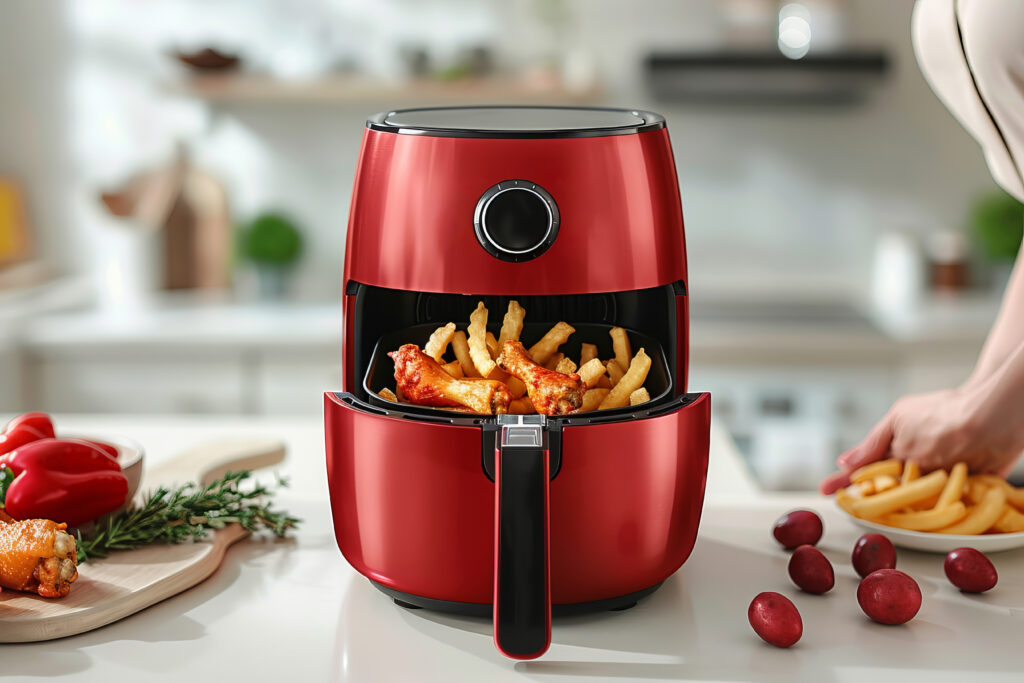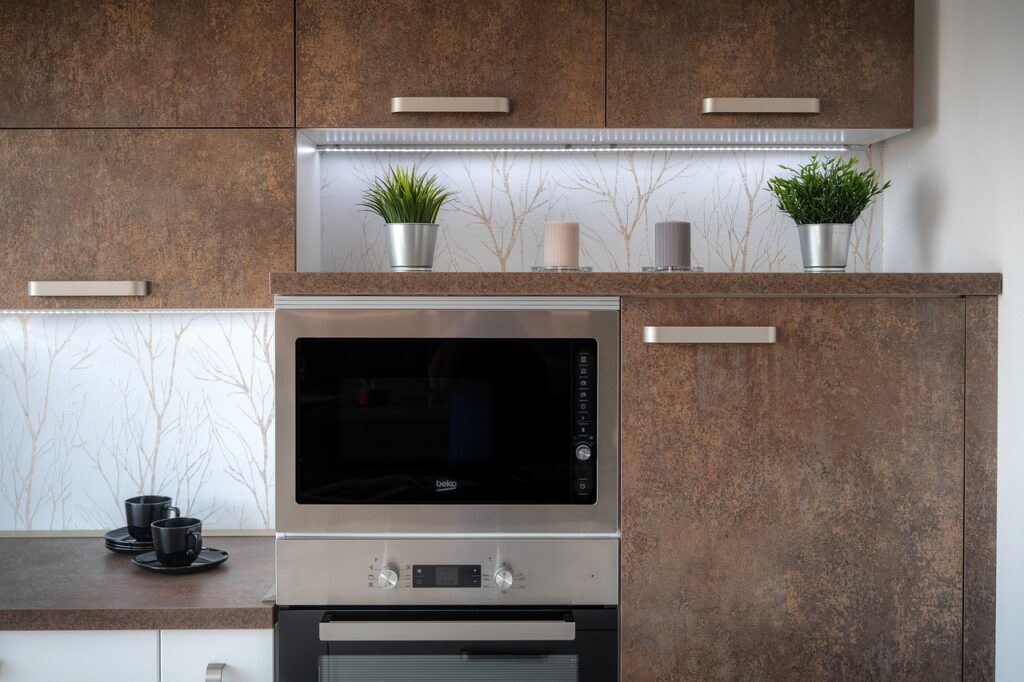
As more individuals look for ways to enjoy tasty meals without sacrificing their health, healthy cooking is becoming a more and more popular topic. Air fryers and convection ovens are two of the many kitchen appliances made specifically for this use. Which is better for your needs? Both promise healthier cooking options by lowering the need for excessive oil. To assist you in making an informed choice, we will examine their features, advantages, and distinctions in this thorough comparison.
What is an Air Fryer?

An air fryer is a small countertop device that quickly pumps hot air around food to simulate deep-frying while using a lot less oil. With a fraction of the calories, it’s a great option for frying classics like chicken wings, French fries, and more thanks to its convection technology, which produces crispy textures. Because it can produce tasty meals while keeping health in mind, this device has become incredibly popular.
Pros:
- Requires little to no oil, making dishes lower in fat and calories.
- Quick cooking times due to its small size and efficient heat circulation, allowing for last-minute meal preparation.
- Easy to use, even for beginners; most models have intuitive controls and presets.
- Compact and space-saving, ideal for kitchens with limited counter space.
Cons:
- Limited cooking capacity, often only suitable for small portions, which may not be ideal for larger families.
- Best for specific cooking styles like frying and roasting; it’s not as versatile as larger appliances.
- Some models can be noisy due to the powerful fan required for rapid air circulation.
What is a Convection Oven?

Conversely, a convection oven is a larger device that also circulates hot air using a fan. This guarantees uniform cooking and browning, which is especially helpful for baking, roasting, and dehydrating, in contrast to conventional ovens. Convection ovens are a common fixture in many homes due to their versatility and ability to perform a greater variety of cooking chores.
Pros:
- Larger capacity, making it ideal for families, meal prepping, or cooking for gatherings.
- Versatile; can bake, roast, broil, and even dehydrate, offering a wide range of cooking options.
- Provides even cooking and browning for consistent results, which is especially important for baked goods.
- Can cook multiple dishes simultaneously, saving time and energy when preparing meals.
Cons:
- Longer preheating and cooking times compared to air fryers, which might not suit those looking for quick meals.
- Takes up more kitchen space and may not be suitable for smaller kitchens.
- Slightly higher energy consumption, especially during prolonged cooking sessions.
The Science Behind Air Frying: Is It Truly Healthier?
The appeal of air frying is that it may mimic the crispiness of deep-fried food while drastically cutting down on fat. Manufacturers frequently assert—supported by scientific analysis—that air frying consumes up to 90% less fat. Air frying quickly circulates hot air to cook food uniformly and give it a crispy quality, in contrast to deep frying, which submerges it in oil.
Significant variations in fat content were discovered in a study comparing deep-fried versus air-fried fish, French fries, and chicken. Air-frying dramatically decreased levels of dangerous trans fats while reducing overall fat by up to 53%. Because of these savings, air frying is a desirable choice for people who are concerned about their health.
But there is a drawback to air-frying. Research indicates that air-fried potatoes had higher levels of acrylamide than deep-fried ones. A chemical molecule called acrylamide, which is produced at high heats in starchy foods, has been connected to possible health hazards. Thankfully, pre soaking potatoes, lowering cooking temperatures, and shortening cooking times can help to reduce this problem.
Key Differences Between Air Fryers and Convection Ovens
- Size and Capacity:
- Air fryers are small and designed for quick, single-dish meals. They’re perfect for individuals or couples.
- Convection ovens are larger and can accommodate bigger portions or multiple dishes at once, making them better for families or meal prepping.
- Cooking Speed:
- Air fryers cook faster due to their compact size and intense air circulation, making them excellent for quick snacks or weeknight meals.
- Convection ovens take longer but allow for more flexibility in cooking methods and the ability to prepare large meals.
- Versatility:
- Convection ovens can handle a broader range of tasks, from baking cakes to roasting turkeys, making them a one-stop solution for many cooking needs.
- Air fryers excel at crisping and frying but have fewer options for diverse cooking methods, limiting their versatility.
- Health Impact:
- Both appliances reduce oil usage, making meals healthier compared to traditional frying methods.
- Air fryers are slightly better for reducing fat in fried foods, as they are specifically designed for oil-free frying.
- Ease of Use and Maintenance:
- Air fryers are user-friendly and easy to clean due to their smaller size and removable components like baskets.
- Convection ovens require more effort to clean, especially after cooking multiple dishes.
Which One is Better for Healthy Cooking?
Your culinary habits and lifestyle will determine the response. An air fryer is a great way to prepare healthier meals with less work whether you have a small family or make fried food most of the time. It is a favorite among convenience-loving, health-conscious people because of its small size and quick cooking capabilities. A convection oven is the best option, though, if you cook frequently or want a one-stop shop for different cooking methods. It is a sensible option for families or serious cooks because of its adaptability and capacity, which enable a variety of food preparation.
For instance, a convection oven is your best option if you regularly bake or roast large portions of meat. On the other hand, an air fryer is a good option if you’re looking for quick, oil-free snacks or side dishes. Having two appliances helps many households meet a variety of culinary needs.
Conclusion
Convection ovens and air fryers can both be very helpful for cooking healthily. Convection ovens provide unmatched adaptability for large-scale cooking, while air fryers excel when it comes to rapid, low-fat frying alternatives. You can select the appliance that best suits your lifestyle by knowing your cooking requirements, the size of your kitchen, and the kinds of food you prepare.
Please share this comparison with others or leave a comment below if it was useful to you. Let’s make cooking healthily accessible to all.